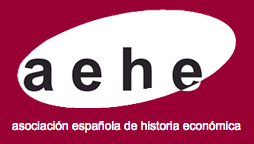Envíos
Aviso de derechos de autor/a
Aquellos autores/as que tengan publicaciones con esta revista, aceptan los términos siguientes
- Los autores/as conservarán sus derechos de autor y garantizarán a la revista el derecho de primera publicación de su obra, el cuál estará simultáneamente sujeto a la Licencia de reconocimiento de Creative Commons Reconocimiento-No comercial-Sin obra derivada 4.0 Internacional que permite a terceros compartir la obra siempre que se indique su autor y su primera publicación esta revista, y no permite hacer uso comercial de la misma ni tampoco obras derivadas.
- Los autores/as podrán adoptar otros acuerdos de licencia no exclusiva de distribución de la versión de la obra publicada (p. ej.: depositarla en un archivo telemático institucional o publicarla en un volumen monográfico) siempre que se indique la publicación inicial en esta revista.
Plagio y fraude científico
La publicación de un trabajo que atente contra los derechos de propiedad intelectual será responsabilidad de los autores/as, que serán los que asuman los conflictos que pudieran tener lugar por razones de derechos de autor. Los conflictos más importantes pueden darse por la comisión de plagios y fraudes científicos.
Se entiende por plagio:
- Presentar el trabajo ajeno como propio.
- Adoptar palabras o ideas de otros autores sin el debido reconocimiento.
- No emplear las comillas u otro formato distintivo en una cita literal.
- Dar información incorrecta sobre la verdadera fuente de una cita.
- El parafraseo de una fuente sin mencionar la fuente.
- El parafraseo abusivo, incluso si se menciona la fuente.
Las prácticas constitutivas de fraude científico son las siguientes:
- Fabricación, falsificación u omisión de datos y plagio.
- Publicación duplicada.
- Conflictos de autoría.
Declaración de privacidad
De acuerdo a lo establecido en la Ley Orgánica 15/1999, de 13 de diciembre, de Protección de Datos de Carácter Personal, le informamos que los datos que nos proporcione quedarán incluidos en un fichero del que es titular la Fundación Española para la Ciencia y la Tecnología (FECYT), y que tiene por finalidad facilitar la prestación de los servicios ofrecidos desde el Repositorio Electrónico de Ciencia y Tecnología (RECYT) y gestionar la relación con los usuarios. La FECYT podrá utilizar estos datos para actividades propias de la fundación, tales como: evaluación, prospectiva, comunicaciones institucionales, así como otras actividades derivadas de la difusión y divulgación de la ciencia y la tecnología en España y la orientación de las políticas científicas y tecnológicas del país. En todo momento podrá ejercer sus derechos de acceso, rectificación, cancelación y oposición dirigiéndose a la FECYT mediante correo ordinario a la dirección C/ Rosario Pino 14-16, 28020 Madrid, indicando la referencia LOPD.





